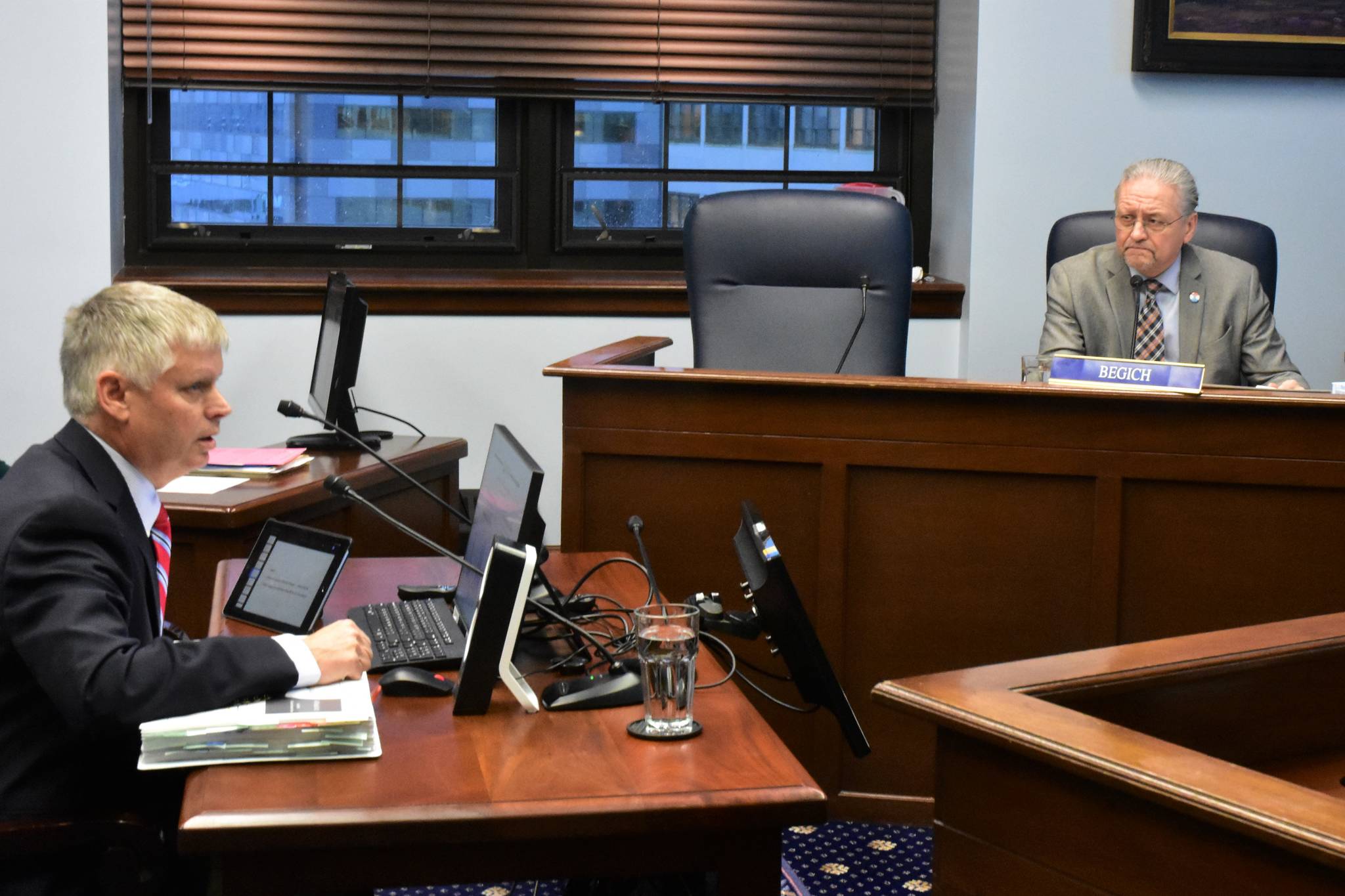In this legislative session, we have set out to build upon past efforts to transform how we view public education by providing new opportunities for our youngest Alaskans. To achieve success, we know that all of us — the Legislature, the governor, education leaders, and the Alaskan public — must put aside political labels and work across party lines. If anything should transcend politics, it’s investing in our future leaders.
We see three primary pillars where the Legislature can have a direct impact on education: (1) Establish and fund universal, voluntary pre-Kindergarten with a strong K-3 reading policy; (2) provide continued opportunities for teachers to advance their knowledge; and (3) establish forward-funding of education as routine policy.
The markers for a child’s adult success develop early in life. Science underscores that how we use our brains in our crucial early years has a direct impact on how successful we are as adults. Research tells us that those who have a high-quality preschool experience succeed academically and professionally. By investing in our youth when they are young, we reduce the financial burden of remedial education, public assistance, and criminal justice services when they are older.
Research further reinforces that if our investment in high-quality pre-K is to truly succeed, it must be coupled with a strong commitment to reading and student growth. That is why this year, with the support of educational leaders in our communities, the Department of Education and Early Development, the governor, and other state leaders, we introduced Senate Bill 6, known as the Alaska Reads Act. In addition to universal voluntary pre-K, this bill includes a strong reading component, significant support for schools that are struggling, and evidence-based reading instruction.
We also recognize that our teachers have not received the support or training they need from the State for far too long. Partially because of this lack of support, we are now experiencing historically low teacher retention. Teachers stay in their jobs when they are supported, properly trained, and integrated into the community. It is imperative that we address the systemic factors of teacher attrition and refocus our efforts on teacher retention and recruitment. That is why we supported an amendment from Sen. Mia Costello to the Alaska Reads Act establishing a Teacher Retention Task Force.
In 2018, the Legislature took the lead and fully funded public education for two years, providing stability and predictability for our students, parents and teachers. Months after passing the budget, Alaska’s attorney general challenged the Legislature’s authority to forward fund. Late last year, the Superior Court of Alaska reaffirmed the Legislature’s constitutional authority to forward fund. Now we are looking for ways to ensure stability and predictability of education. Because of this, a bipartisan group now supports Senate Joint Resolution 9, which seeks to amend Alaska’s constitution to require the Legislature to early fund public education as a priority. This will assist districts in recruiting teachers, help them plan their budgets, and provide districts an opportunity to prepare for the upcoming school year. Ensuring funding predictability gives our schools the tools necessary to focus on what really matters: educating our future leaders.
Together these components — pre-K supported by strong evidence-based reading in early grades, support to retain and recruit our teachers, and early funding of education to provide stability and predictability are necessary to advance high-quality public education in Alaska.
Some things are more important than our political disagreements, and the ability to provide the best education for our children is one of those. We are proud to say we are working together on these issues because our kids deserve the best opportunities to succeed.
Tom Begich is a Democratic senator representing Anchorage.
• By Sen. Tom Begich

